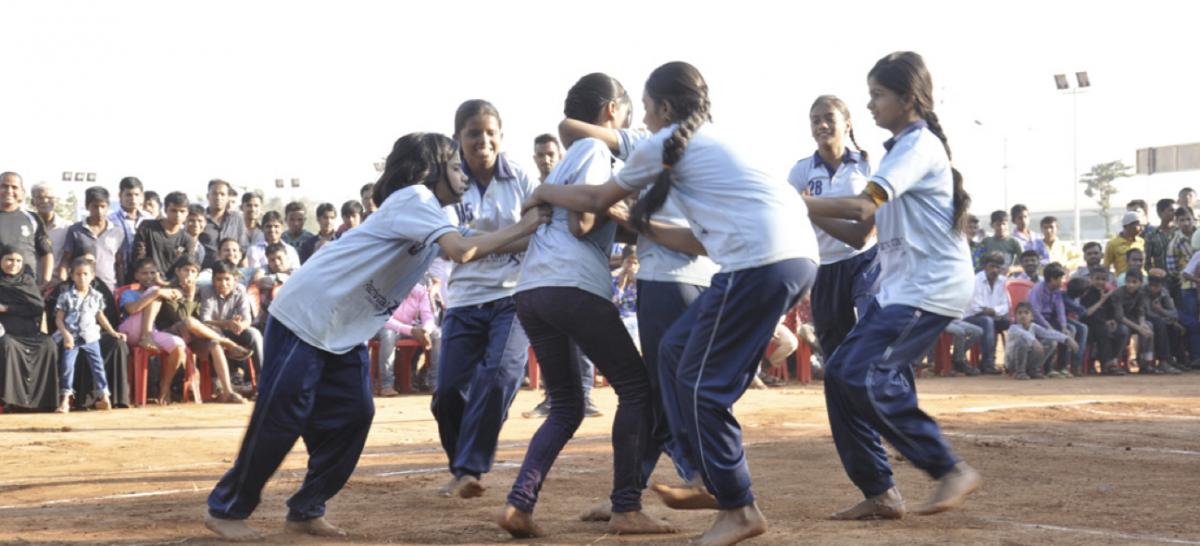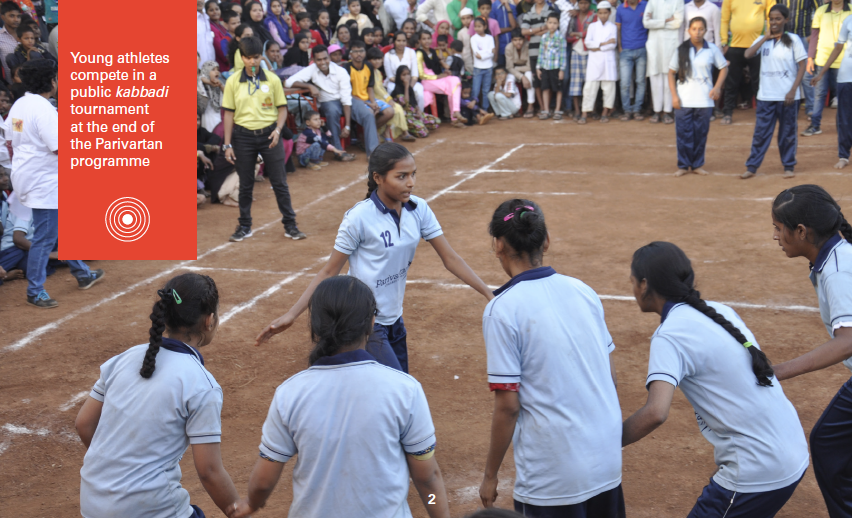Stories of Change share the powerful and personal stories of how STRIVE has had an impact on individuals, families and communities through our interventions and research.

Stories of change: We have come out of our boxes so we are free
“We didn’t know that we were in small boxes… we were taught and then understood, and we have come out of our boxes… So we are free”
Stories of Change share the powerful and personal stories of how STRIVE has had an impact on individuals, families and communities through our interventions and research.
Gender and social norms
What's the issue?
Social norms are unwritten rules that regulate acceptable behaviour in a group. Certain norms can increase HIV-associated risk, as well as other sexual outcomes. They can, for instance, increase risk of transmission by reducing condom use, or increase vulnerability by increasing likeliness of sexual violence.
Engaging adolescent girls in a sports-based programme to challenge norms in their communities
Read the full impact case study here
Harmful gender norms act as a major hurdle in the development of adolescent girls and young women in India.The Parivartan programme engaged with adolescent girls in a sports programme, challenging the strong norm that “sports is a boys’ thing” and demonstrating that change is possible.The role-model approach helped girls and young women to claim public space and this resulted in increased mobility and visibility.
Child Marriages and Unions in Latin America: Understanding the Roles of Agency and Social Norms
Child marriages and unions can infringe upon adolescent and youth sexual and reproductive health. Interventions increasingly promote strategies to transform social norms or foster the agency of adolescent girls. Recent empirical studies call for further understanding of how social norms and agency interact in ways that influence these practices, especially in contexts where girls' agency is central.
Social norms and child marriage in Cameroon: An application of the theory of normative spectrum
This paper reports on a qualitative study on social norms and child marriage in rural Cameroon, a country with high prevalence of child marriage but largely ignored in the literature. Study participants were men and women from four different ethnic groups living in four rural villages (two in the Far-North, two in the East).
Researchers conducted 16 semi-structured focus groups to understand how existing social norms contributed to child marriage in participants’ communities.
Widening cracks in patriarchy: mothers and daughters navigating gender norms in a Mumbai slum
Inequitable gender norms can be harmful to girls’ and boys’ health and sexuality. Programmatic approaches that help renegotiate gendered power relationships are sorely needed.
This qualitative study reveals how Parivartan, a sport-based intervention in a Mumbai informal settlement, helped families resist inequitable gender norms that limited girls’ mobility in public spaces. Fifteen girl athletes were interviewed in two rounds of face-to-face in-depth interviews.
Evidence brief: Parivartan for Girls: Addressing restrictive gender norms
Worldwide, harmful gender norms are structural barriers to the health and development of adolescent girls. In India, restrictions on girls’ liberty to move freely in public spaces contribute to school dropout and early marriage, and negatively affect girls’ health and wellbeing from adolescence into adulthood.
Impact case study: Engaging adolescent girls in a sports-based programme to challenge norms in their communities
Harmful gender norms act as a major hurdle in the development of adolescent girls and young women in India. The Parivartan programme engaged with adolescent girls in a sports programme, challenging the strong norm that “sports is a boys’ thing” and demonstrating that change is possible. The role-model approach helped girls and young women to claim public space and this resulted in increased mobility and visibility.




